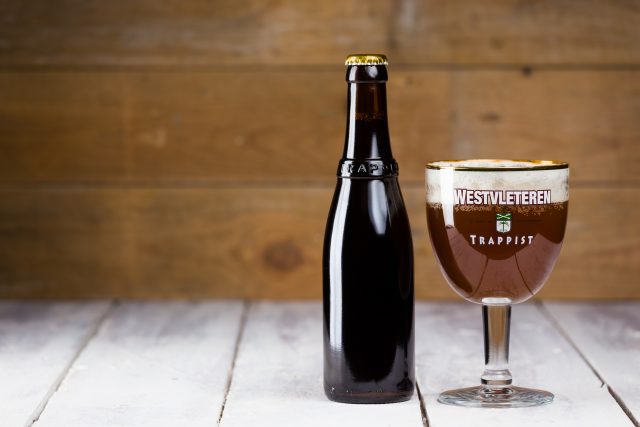Monks take action over the illegal resale of Trappist beer
Belgian monks have responded to Trappist beers being illegally resold at high prices by making changes to how their beers are obtained.

After discovering their beers were being legally resold at inflated prices in other countries, the brothers of Belgium’s Saint-Sixtus Abbey have made moves to remind people that Trappist beer is not brewed for the benefit of profiteers.
Until now, the sale of Trappist beer from Saint-Sixtus Abbey has been strictly regulated and has previously only truly been available to private individuals able to collect their orders at the abbey door or a nearby visitor centre. Back in 2021, the abbey initially trialled a pilot home delivery project, taking orders of a maximum of one crate of beer to customers with an address in Belgium, but it was not enough to quell demand and profiteering rackets have pushed the abbey to adapt its rules for a trial period of a year to try to stamp out illegal sales.
To tackle the issue, this week, the abbey revealed plans for its three beers — Trappist Westvleteren Blond, Trappist Westvleteren VIII, and Trappist Westvleteren XII — to be sold in independent Dutch liquor stores for a year in a bid to stop businesses buying crates from the abbey and reselling them over the border at inflated prices. During the year-long trial period, the abbey’s Trappist beer will also be distributed in the Netherlands via an importer in Hulst.
According to reports via Dutch newspaper the Algemeen Dagblad, the abbey had managed to tackle illegal reselling in Belgium, but the brothers were still consternated that the problem had shifted over the border.
The Dutch Catholic newspaper Katholiek Nieuwsblad highlighted the issue further and pointed out that “a lucrative profiteering business in the Netherlands, with bottles of Trappist being resold to stores, cafes, and restaurants for large sums of money” due to the product’s popularity and scarcity.
Currently, a crate of 24 bottles of Trappist Westvleteren XII ordered from the abbey website retails for €48.80, equal to a little more than €2 per bottle. But the same beer, when bought through an unauthorised retailer in another country, the same much-coveted beer has been reported to cost more than €10 per bottle.
Partner Content
Responding to the issue, the abbey told reporters: “These usurious practises are diametrically opposed to the values of the community. After all, the brothers want as many people as possible to enjoy their Trappist beers at a normal, fair price.”
The brewery at Saint-Sixtus Abbey, situated in the Belgian province of West Flanders, dates back to 1839 when it received a brewer’s license signed by Belgium’s King Leopold I.
The abbey brewery belongs to the Order of Cistercians of the Strict Observance and has 20 monks and nine lay workers who work just 42 brewing days per year and annually to produce approximately 7,500 hectolitres of its highly-sought-after unfiltered and unpasteurised Trappist beer.
The beers must be strictly made by monks using the infusion brew method using only the natural ingredients of water, barley malt, hops, and yeast. Additonally, to qualify for the Trappist mark, all beers must be created within the abbey environs with the process supervised by monks or nuns, and any profits going back to the religious community or charitable works.
Only five of Belgium’s beers bear the ‘Authentic Trappist Product’ logo: Chimay, Orval, Rochefort, Westmalle, and Westvleteren with the Trappist Westvleteren XII beers often considered to be the rarest.
Recent reports have shown how the future of Trappist beer faces increasing uncertainty due to fewer people are being drawn to life as a monk. Just this month, another Trappist brewery revealed it was set to close after news that its last four monks had stated their intentions to depart, leaving the Trappist beer category in a precarious position.
Related news
The Castel Group rocked by Succession-style family rift
Carlsberg boosts presence in China with restaurant guide tie-up




